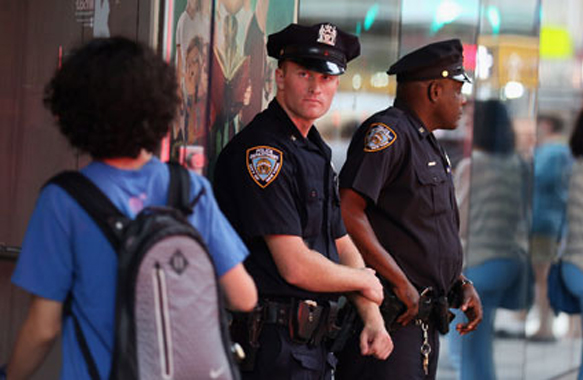Can Big Data Transform Social Justice?
Tracking police stops and use of force will allow researchers to analyze police behavior across the country, says Phillip Goff | Photograph: Mario Tama/Getty Images
By Phillip Atiba Goff | Originally Published at Cable News Network [CNN]. Updated May 2, 2014 1:08 PM EDT
Editor’s note: Phillip Atiba Goff is an assistant professor of psychology at UCLA and president of the Center for Policing Equity. The opinions expressed in this commentary are solely those of the author.
(CNN) — Target knows when you get pregnant. Facebook knows when you break up with someone. Google knows when you have been in a car accident.
These are all (terrifying) consequences of our increasing lack of privacy. They are also results of the “big data” revolution that’s transforming our society. Whether you are a buyer, a seller or a hopeless romantic “researching” your old high school crush, chances are, some program is keeping track of all your clicks. This is what big data can do. By aggregating data from billions of people, analysts can predict what you are likely to do next.
Given the degree to which Amazon and Facebook have crushed their competition, companies that do not take advantage of big data are doomed to obsolescence.
Related Read Stop and Frisk; The Statistics Speak
Why then, with all the noise we hear about the rise of big data in consumerism, do we hear so little about big data in social justice? Is it not possible for big data to make the world a better place while making it creepier empathyeducates – Can Big Data Transform Social Justice?:
5-3-14 the becoming radical EMPATHYEDUCATES! | A Place for a Pedagogy of Kindness by P. L. Thomas, EdD
THE BECOMING RADICALRadical ScholarshipEMPATHYEDUCATES!the becoming radical A Place for a Pedagogy of Kindness by We Socialize Girls To Be Better at School But Set Them Up For Failure in the Real WorldCredit: Shutterstock By Sarah Jane Glynn | Originally Published at Think Progress. April 30, 2014 2:43 PM The New York Times’s Upshot blog reported on Tuesday that the “behavior gap” (which includes

